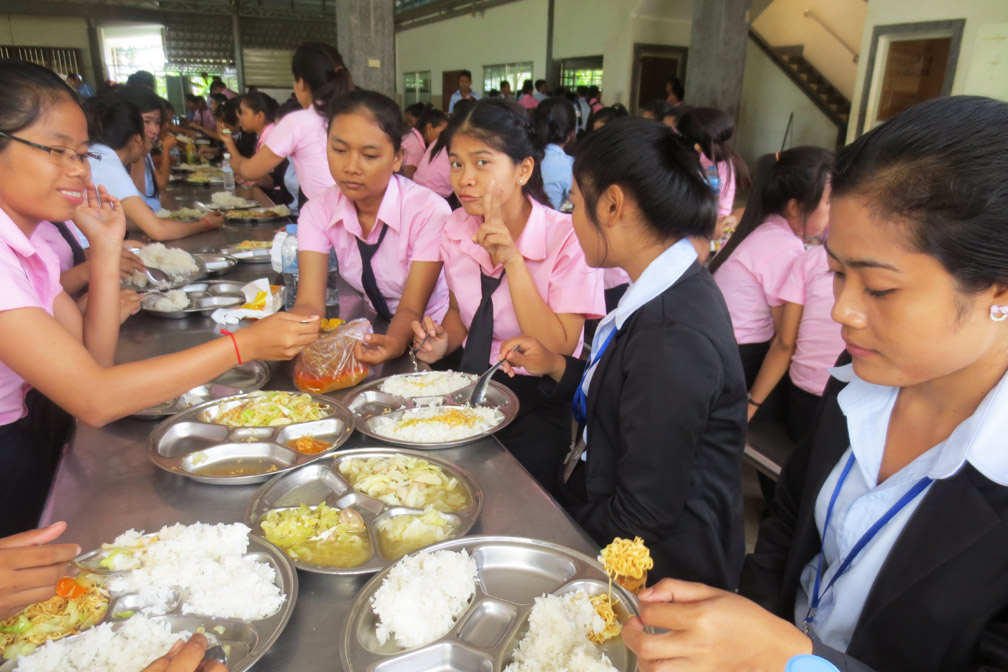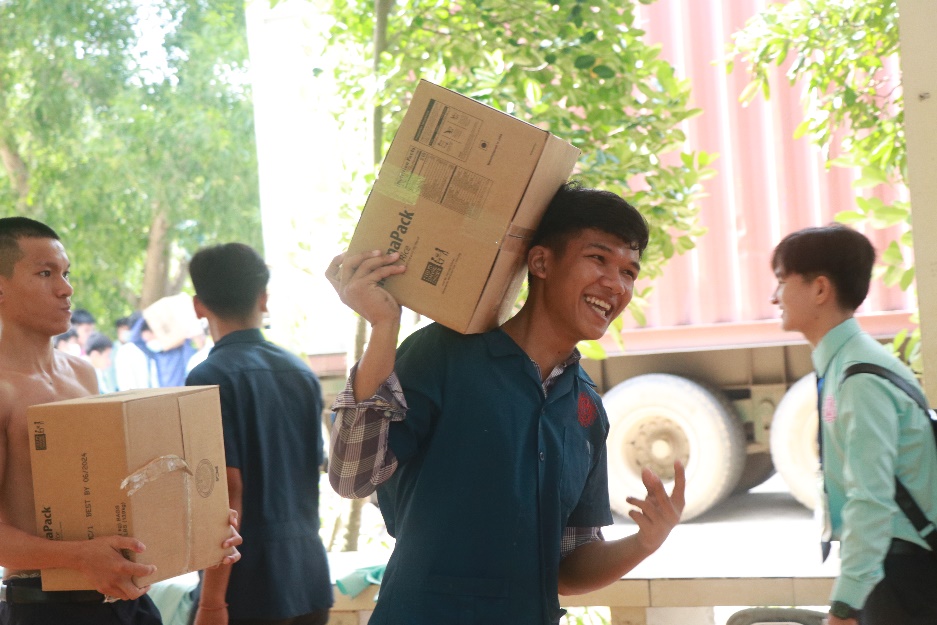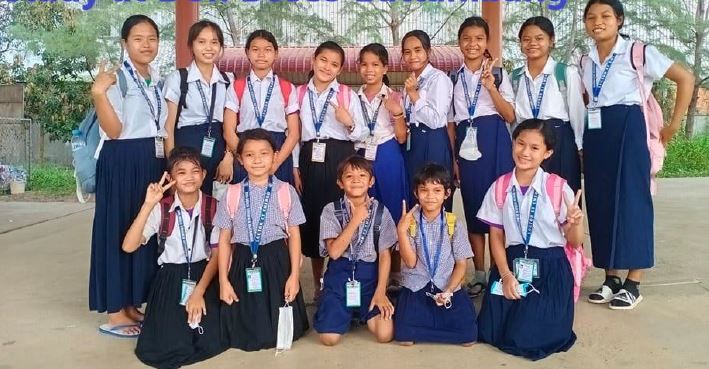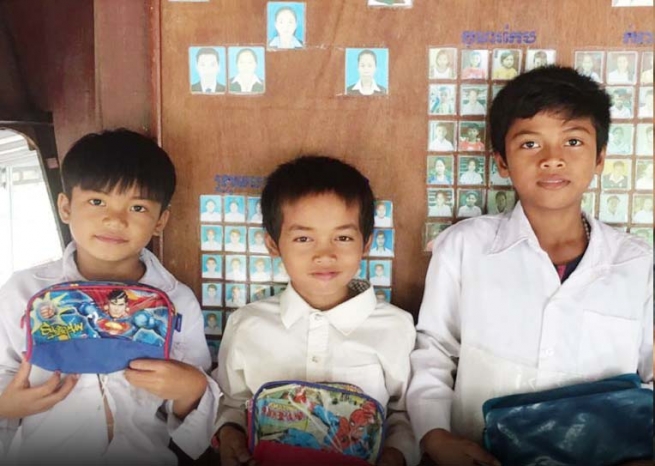CAMBODIA: More than 700 Technical School Students Have Access to Better Nutrition Thanks to Rice-Meal Donation

(MissionNewswire) The Don Bosco Technical Center and the Don Bosco Hotel School in Sihanoukville, a city in southwestern Cambodia located on the Gulf of Thailand, recently received a shipment of rice-meals that benefitted more than 700 students at the two institutions. The donation was made possible through an ongoing partnership between Salesian Missions and Stop Hunger Now, an international relief organization that provides food and life‐saving aid to the world’s most vulnerable.
Both the Don Bosco Technical Center and the Don Bosco Hotel School provide two-year skill training programs to poor and orphaned youth between the ages of 17 and 22 years with limited opportunities for education. The Don Bosco Hotel School focuses on hospitality programs to prepare students for work in restaurants, at catering companies and hotels and in other areas of the tourism field. The Don Bosco Technical Center, the largest technical school in the area, offers courses in electricity, electronics, automotive repair, printing, web design, audiovisual editing and production, journalism, social communication, secretarial skills, sewing, culinary arts, hotel management and welding.
Primarily known for its social communication and journalism program, the Don Bosco Technical Center is home to the Salesian-run Audiovisual Center which operates as a teaching institution for media communications while providing audiovisual production services to the local community. Started in 2007 by Father Albeiro Rodas Samnang, rector of the Don Bosco Foundation of Cambodia, the Audiovisual Center trains youth from rural and disadvantaged communities in media communications with the goal of teaching them a viable trade that will lead to stable employment after graduation. In addition to courses in media communications, the center offers workshops facilitated by Cambodian journalists.
The donated rice-meals are provided to students during the school day, and for 161 students who are boarders at the schools, meals are provided three times a day.
“Technical students need the proper nutrition to focus on their studies and fully take part in classroom and in-field training,” says Father Mark Hyde, executive director of Salesian Missions, the U.S. development arm of the Salesians of Don Bosco. “Prepared students are more likely to learn valuable skills that will help them gain employment and break the cycle of poverty in their lives while enabling them to give back to their communities.”
Stop Hunger Now partners with Salesian Missions (in New Rochelle, N.Y.) which works to identify needs and coordinate delivery of 40-foot shipping containers full of meals supplemented with additional supplies when available. The partnership was developed in 2011 and since that time, more than 60 shipping containers, including more than 16 million rice-meals, have been successfully delivered to 19 countries around the globe. The meals and life-saving aid has helped to nourish poor youth at Salesian schools and programs and care for those in need of emergency aid during times of war, natural disasters and health crises.
“The partnership with Stop Hunger Now allows Salesian Missions to expand its services for youth in need,” adds Fr. Hyde. “Operating feeding programs for youth in Salesian schools whose families cannot afford to feed them is very important and integral to the success of our students and their ability to gain an education.”
Salesian missionaries have a long history of teaching job skills to youth in Cambodia. Through the United Nations, missionaries began providing technical and vocational education to Cambodian refugees living in camps along the Thai-Cambodian border in the late 1980s. In 1993, at the invitation of the government of Cambodia, a technical School in Phnom Penh was established to republish, translate and write books and educational documents that were destroyed during the Khmer Rouge regime. The technical school contained the only working printing press in the country – and served as a model of hope through education.
###
Sources:




